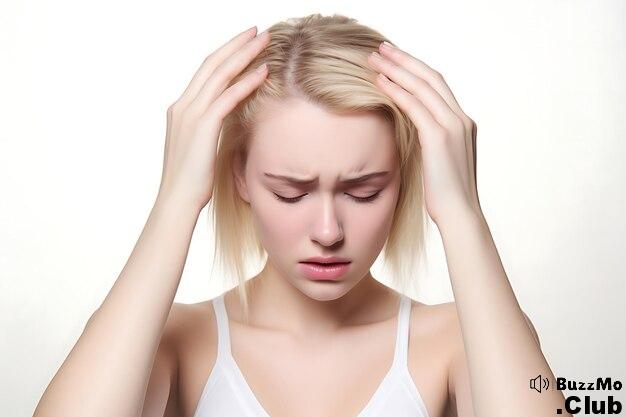In the realm of health and wellness, alpha-lipoic acid (ALA) has gained substantial attention. Many swear by its potential benefits, but could there be a darker side? This article delves into the intricate connection between alpha-lipoic acid and hair loss. Before you embark on an ALA supplement journey, it’s crucial to unravel the facts.
What is Alpha-Lipoic Acid?
Alpha-lipoic acid, often dubbed the “universal antioxidant,” is a powerful compound naturally present in the body. It plays a pivotal role in energy production and antioxidant defense mechanisms. This compound can also be sourced from certain foods and is available as a dietary supplement.
Alpha-Lipoic Acid and Hair Loss: The Connection
Hair Follicles and ALA
Before we unravel the potential side effects, let’s explore how ALA interacts with hair follicles.
| Interaction | Description |
|---|---|
| Antioxidant Effect | ALA’s role in protecting hair follicles |
| Blood Circulation | Improved blood flow for healthier hair |
| Cellular Energy | Enhanced energy production for follicles |
Potential Side Effects of Alpha-Lipoic Acid
While ALA is celebrated for its benefits, understanding the potential side effects is crucial. Let’s explore the comprehensive list, focusing on those related to hair health.
ALA Side Effects Table
| Side Effect | Description |
|---|---|
| Hair Loss | The potential impact of ALA on hair shedding |
| Skin Rashes | Allergic reactions that might affect the scalp |
| Gastrointestinal | Digestive issues that can indirectly impact hair health |
| Insulin Sensitivity | ALA’s influence on insulin and its repercussions |
Alpha-Lipoic Acid Dosage and Hair Loss
Determining the right ALA dosage is a critical aspect. Striking the balance between reaping the benefits and avoiding adverse effects is essential.
Recommended Dosages Table
| Age Group | Recommended ALA Dosage |
|---|---|
| Adults | 600-1200 mg per day |
| Children | Consult a healthcare professional for appropriate dosing |
Natural Remedies for Hair Loss ( Your Hair and Alpha-Lipoic Acid Journey)
While ALA holds promise, it’s not the only player in the field. Exploring natural alternatives is wise for those seeking holistic approaches to hair health.
- Antioxidant-Rich Foods
- Berries, nuts, and leafy greens contribute to overall scalp health.
- Vitamin and Mineral Supplements
- Ensuring adequate intake of vitamins like A, E, and minerals like zinc and iron is beneficial.
Dos and Don’ts of Using ALA for Hair
Navigating the realm of supplements requires caution. Here’s a quick guide to help you make informed decisions.
A.Dos
1.Consult a Professional
- Seek advice from a healthcare professional before starting any supplement regimen.
2.Monitor Your Body
- Pay attention to how your body responds and adjust dosage accordingly.
3.Balanced Diet
- Supplement ALA with a well-rounded, nutrient-rich diet for comprehensive benefits.
B.Don’ts
1.Self-Diagnose
- Avoid self-diagnosing hair issues; consult a professional for an accurate assessment.
2.Excessive Dosage
- Stick to recommended dosages to prevent adverse effects.
Closing Thoughts on ALA and Its Potential Impact
In conclusion, the relationship between alpha-lipoic acid and hair loss is multifaceted. While some may experience positive outcomes, others might face challenges. The key lies in understanding your body’s response, consulting professionals, and adopting a holistic approach to hair care.
Remember, achieving and maintaining healthy hair involves a combination of factors. From lifestyle choices to dietary habits, each element plays a role. While ALA may contribute positively to your journey, it’s essential to view it as part of a larger picture.
The Holistic Approach: Beyond ALA
1.Stress Management
- Chronic stress is known to impact hair health. Incorporate stress management techniques into your routine.
2.Regular Exercise
- Physical activity promotes blood circulation, benefiting your scalp and hair follicles.
3.Adequate Hydration
- Hydrated hair is healthy hair. Ensure you’re drinking enough water daily.
Embrace Your Unique Hair Journey
As you embark on your hair care journey, embrace the uniqueness of your experience. Hair health is influenced by an array of factors, and what works for one may not work for another. Tailor your approach, seek professional guidance, and enjoy the process of discovering what brings out the best in your locks.
In the end, whether you choose to incorporate alpha-lipoic acid or explore other avenues, the most important thing is to prioritize your overall well-being. Your hair is a reflection of your health, so nurture it with care, patience, and a touch of self-love.
Real-life Experiences
Personal stories can provide valuable insights. However, it’s crucial to approach them with a discerning eye.
1.Positive Experiences
- Improved hair texture and shine
- Reduced hair fall after ALA supplementation
2.Negative Experiences
- Increased hair shedding
- Skin reactions affecting the scalp
FAQs
1. Can alpha-lipoic acid cause hair loss?
While some anecdotal evidence suggests this, scientific research is inconclusive. Individual responses may vary.
2. How does alpha-lipoic acid affect hair growth?
ALA’s impact on blood circulation and cellular energy may contribute to healthier hair growth.
3. Is it safe to take alpha-lipoic acid supplements for hair loss?
Consulting a healthcare professional is crucial to determine individual suitability and appropriate dosage.
4. What is the recommended alpha-lipoic acid dosage for hair health?
For adults, a daily dosage of 600-1200 mg is commonly suggested. Children should have dosages tailored by a healthcare professional.
5. Are there any natural alternatives to alpha-lipoic acid for hair loss?
Exploring a balanced diet rich in antioxidants, vitamins, and minerals is advisable. Consultation with a healthcare professional is essential for personalized advice.
In the world of supplements, transparency is key. Alpha-lipoic acid holds promise, but its impact on hair health requires careful consideration. Before incorporating it into your routine, consult with a healthcare professional to ensure a personalized and safe experience.
Remember, your hair’s journey is as unique as you are, and finding the right balance is the key to unlocking the benefits of alpha-lipoic acid without unwelcome surprises.

